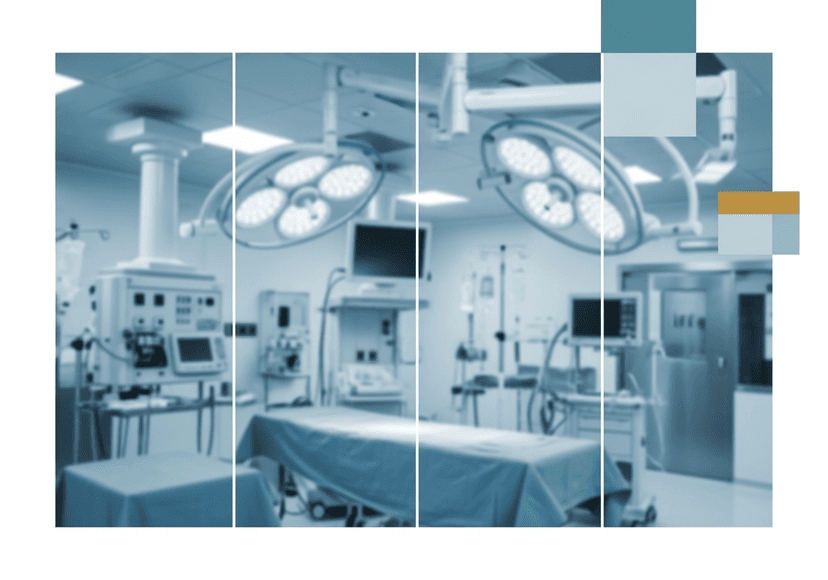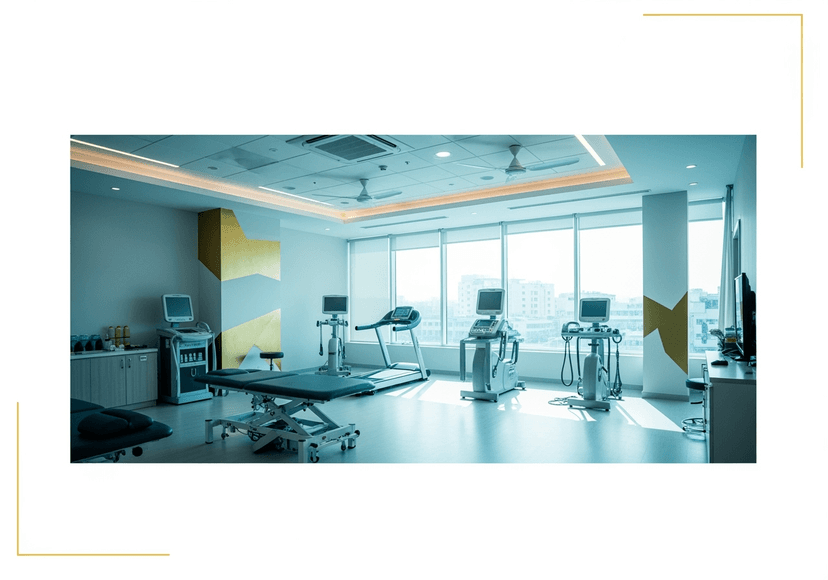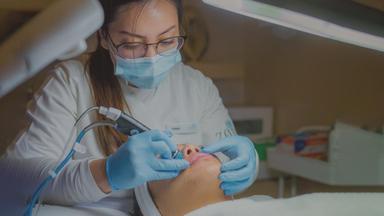
Hiatal Hernia Surgery: Types, Risks, and Complications
03 May, 2023
 Obaidullah Junaid
Obaidullah JunaidHiatal hernia, a medical condition that transpires when a section of the stomach protrudes through the diaphragm and enters the thoracic cavity, is a rather complex ailment. While a multitude of individuals afflicted by hiatal hernias may be asymptomatic, others may suffer from heartburn, gastroesophageal reflux, chest pain, and dysphagia. There are instances where surgical intervention becomes necessary to remedy this disorder. This article aims to expound upon the various types of hiatal hernia surgical procedures, the attendant hazards, as well as the potential complications.
Preparation for Hiatal Hernia Surgery
Most popular procedures in India
The patient is instructed to undergo a period of fasting for a significant number of hours prior to the surgical procedure, so as to ensure the absence of any food within their digestive system. Additionally, the cessation of certain medicinal drugs may also be required, especially those which possess the potential to exacerbate bleeding during the operation, such as blood thinners and aspirin. The attending surgeon shall perform a comprehensive physical examination of the patient, and may choose to administer several tests such as electrocardiography, blood examinations, and chest radiography, in order to establish the patient's fitness level for surgery.
Types of Hiatal Hernia Surgery
Wellness Treatments
Give yourself the time to relax
Lowest Prices Guaranteed!

Lowest Prices Guaranteed!
There are several types of hiatal hernia surgery, depending on the severity of the condition and the individual's overall health. These include:
Laparoscopic Surgery
Laparoscopic surgery, also known as minimally invasive surgery, involves making several small incisions in the abdomen to insert a laparoscope, a thin, flexible tube with a camera and surgical instruments attached to it. The surgeon uses the camera to guide the instruments to repair the hernia without the need for a large incision. Laparoscopic surgery is generally considered safer than open surgery and offers a shorter recovery time, less pain, and scarring.
Open Surgery
Open surgery is a surgical method that involves a substantial incision in the abdominal region for accessing the hernia. The medical professional manually diminishes the hernia, and then uses sutures to repair it. While laparoscopic surgery is typically preferred, certain patients may require open surgery, particularly those with intricate or significant hiatal hernias.
Fundoplication
Fundoplication is a type of surgery that is often performed in conjunction with hiatal hernia surgery. This procedure involves wrapping the upper part of the stomach around the lower part of the esophagus to prevent acid from flowing back into the esophagus.
- Nissen Fundoplication: This surgery involves wrapping the upper part of the stomach around the lower esophagus to create a tighter sphincter. This helps to prevent stomach acid from flowing back into the esophagus, which can cause heartburn and other symptoms.
- Laparoscopic Fundoplication: This is a minimally invasive procedure that involves making several small incisions in the abdomen to access the stomach and esophagus. During the procedure, the surgeon will use a laparoscope, which is a thin, flexible tube with a camera on the end, to guide the surgery. This type of surgery typically has a shorter recovery time and less pain compared to traditional open surgery.
- Endoluminal Fundoplication: This is a newer type of surgery that involves using an endoscope to access the stomach and esophagus. During the procedure, the surgeon will use a special device to create a series of folds in the stomach tissue, which helps to tighten the sphincter and prevent acid reflux.
The Surgery Process
Hiatal hernia surgery is typically performed under general anesthesia, which means the patient will be asleep during the procedure. The surgeon will make several small incisions in the abdomen and use special instruments to repair the hernia. Depending on the type of surgery, the surgeon may wrap a portion of the stomach around the esophagus or create a new valve to prevent stomach acid from flowing back into the esophagus.
Recovery After Surgery
After a surgical procedure, the individual shall be transferred to a recuperation area where they shall be observed for several hours until the effect of the anesthesia fades. They may encounter some degree of discomfort and agony, which can be mitigated with the use of analgesics. The specialist shall provide guidance on how to manage the incisions and when to recommence regular activities. Patients are advised to abstain from demanding activities for a few weeks following the surgery to facilitate the proper healing of the incisions.
Long-Term Management
After hiatal hernia surgery, patients may need to make some lifestyle changes to prevent the hernia from recurring. This may include avoiding certain foods that can increase the risk of acid reflux, such as spicy and fatty foods, quitting smoking, and maintaining a healthy weight. Patients may also need to take medication to manage acid reflux and prevent complications, such as esophagitis and Barrett's esophagus.
Risks of Hiatal Hernia Surgery
- As with any surgery, there are risks associated with hiatal hernia surgery. Some of these risks include:
- Damage to surrounding organs
- During surgery, there is a risk of damage to surrounding organs, such as the esophagus, stomach, or spleen.
- Reaction to anesthesia
- Some individuals may have an allergic reaction to anesthesia or may experience other complications related to anesthesia.
- Infection: Any time the skin is broken during surgery, there is a risk of infection. Patients who undergo hiatal hernia surgery may be given antibiotics before and after the procedure to help prevent infection.
- Bleeding: There is a risk of bleeding during and after surgery. In some cases, additional surgery may be necessary to stop the bleeding.
- Damage to nearby organs: During surgery, there is a risk of damage to nearby organs, such as the liver, spleen, or pancreas.
- Difficulty swallowing: Some patients may experience difficulty swallowing after surgery, which can be caused by swelling or damage to the esophagus.
- Gas bloat syndrome: This is a condition that can occur after surgery where patients experience excessive gas and bloating. This can be caused by the surgery changing the way the stomach empties.
Complications of Hiatal Hernia Surgery
In addition to the risks associated with the surgery itself, there are also potential complications that may occur after surgery. Some of these complications include:
- Esophageal perforation: This is a rare but serious complication where the esophagus is punctured during surgery. This can lead to infection and other serious complications.
- Gastric volvulus: This is a condition where the stomach twists on itself, causing a blockage. This can be life-threatening and may require emergency surgery to correct.
- Recurrence of hiatal hernia: While surgery can effectively treat hiatal hernias in most cases, there is a risk of the hernia returning in the future.
- Dumping syndrome: This is a condition that can occur after surgery where food moves too quickly through the stomach and into the small intestine. This can cause symptoms such as nausea, vomiting, and diarrhea.
- Acid reflux
- In some cases, surgery may not completely alleviate symptoms of acid reflux or heartburn.
- Hernia recurrence
- There is a small risk of hernia recurrence after surgery.
Recovery
After undergoing hiatal hernia surgery, the recovery period is contingent upon the patient's individual condition and the kind of surgical procedure performed. Typically, those who have undergone laparoscopic surgery can anticipate returning to their regular activities within a couple of weeks, whereas those who have had open surgery may take up to six weeks. Throughout the convalescent phase, patients ought to steer clear of any arduous activities, weight lifting, and foods that may irritate the gastric region.
Conclusion
Hiatal hernia surgery is a treatment option for individuals who experience symptoms such as acid reflux, chest pain, and difficulty swallowing. There are several types of surgery, including laparoscopic surgery and open surgery, and the risks associated with surgery include infection, bleeding, and damage to surrounding organs. Complications may include difficulty swallowing, acid reflux, hernia recurrence, and gas bloat syndrome. It is important to discuss the risks and benefits of surgery with a healthcare provider before making a decision.
Related Blogs

Getting a Second Medical Opinion from Indian Doctors – 2025 Insights
Explore getting a second medical opinion from indian doctors –

Post-Surgery Recovery Tips for International Patients – 2025 Insights
Explore post-surgery recovery tips for international patients – 2025 insights

Best Countries for Affordable Healthcare in 2025 – 2025 Insights
Explore best countries for affordable healthcare in 2025 – 2025

A Guide to Indian Healthcare for Sri Lankan Patients – 2025 Insights
Explore a guide to indian healthcare for sri lankan patients

Heart Bypass Surgery in India: What International Patients Should Know – 2025 Insights
Explore heart bypass surgery in india: what international patients should

Best Physiotherapy Centers in India for Medical Tourists – 2025 Insights
Explore best physiotherapy centers in india for medical tourists –










